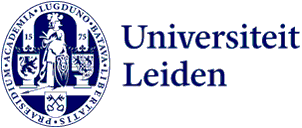
Cultural genocide: 'I see no scenario in which Uyghur culture can revive in Xinjiang'
Within just a few years, the Chinese government's policy towards the Uyghurs deteriorated sharply. From control and marginalisation, it shifted to violation of human rights. PhD candidate Elke Spiessens was right in the middle of it with her research. 'The fabric of the community is being completely torn apart.'
When Elke Spiessens began her PhD project, she had a clear question in mind. She wanted to find out how the Uyghurs shape their Islamic education in a country where everything is controlled by one party. 'On the one hand, the Communist Party is atheist, but on the other, it has official religious organisations to train imams and send them to prestigious training programmes in Cairo, for example,' she explains. 'I wanted to know how the Uyghurs themselves experienced this contradiction.'
She left for Xinjiang in 2015 for field research, but shortly after her return, the Chinese government appeared to change its policy towards Uyghurs. Large groups of the Turkish-speaking minority were rounded up and detained in what China calls 're-education camps'. A large number of people disappeared, Uyghurs with relatives abroad were threatened, and the collection of biodata was widespread. Overtaken by these horrific events, Spiessens decided to shift the focus of her research: 'I then started to look at why and how the Chinese government changed its policy and to what extent this could be explained from the point of view of broader religion policy.'
Islam as a scapegoat for party politics
She discovered that the change in direction primarily had to do with party politics. 'The Chinese government generally shifted towards a more authoritarian regime under Xi Jinping,' she explained. 'You see within the party a tendency to draw more control to Beijing and keep people more under control.' Among other things, this new direction manifests itself in China's increasing profile as a nation-state, in which there is no room for an alternative identity such as that of the Uyghurs.
The Chinese frame of the Uyghurs fits very well within the international framework of the war on terror.
However, Islam does appear to be the party's ideal scapegoat to justify its new Uyghur policy. 'Ever since 2001, you can see that the government has been focusing on the danger of terrorism among the Uyghurs. That fits very well within the international framework of the war on terror, but certainly in the beginning that image had absolutely no basis. While there was resistance among the Uyghurs, it was directed against the specific oppression by the Chinese government and the marginalisation of their ethnic group. By framing that resistance as terrorism, the Chinese government created a self-fulfilling prophecy, because eventually Uyghurs did indeed leave for Syria. Thus, in the minds of others, all Uyghurs have become potential terrorists. That gives the Chinese government a licence to to take tough intervention measures.
Cultural genocide
'Right now there is a cultural genocide going on. People are no longer given any platform, any place to express themselves in the way they want. People are even placed in Uyghurs' homes to check whether they speak Chinese among themselves. The Uyghurs can no longer talk openly anywhere about what they really think, so you see that both in the camps and in people's homes, the fabric of society is being completely torn apart.'
According to Spiessens, this makes it unlikely that the Uyghurs will be able to preserve their own culture. 'The question is how much time it will take for the next generation to indeed forget all those features of the culture, but I don't see a scenario in which the Uyghurs themselves have the power and resources to revive their culture in Xinjiang.'
